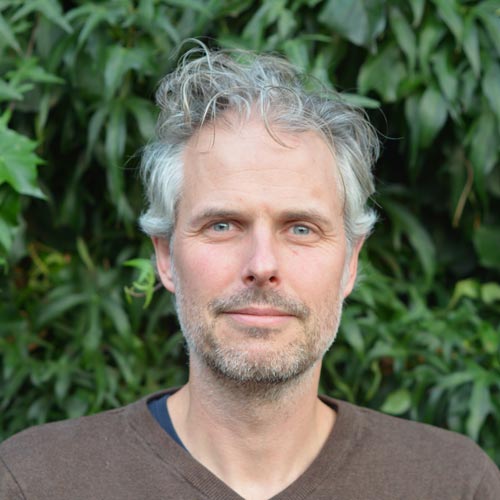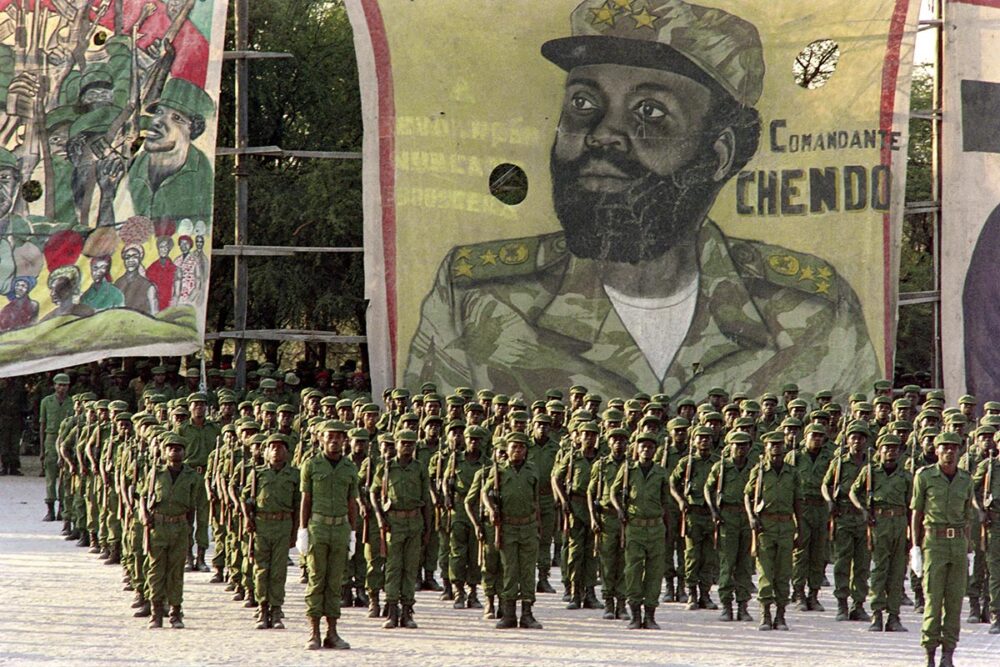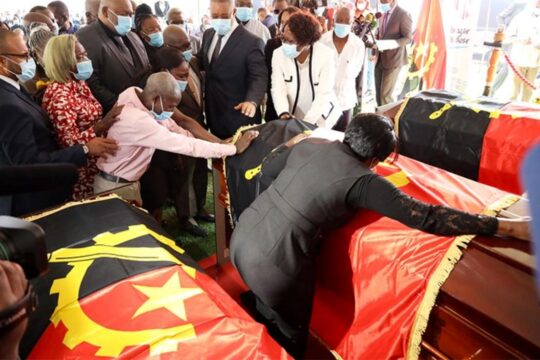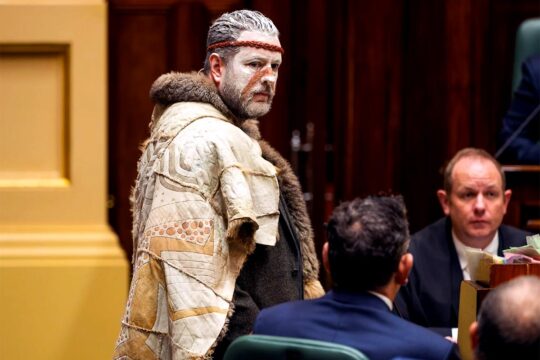In August, Angola's government-led Reconciliation commission (CIVICOP) stirred up controversy by taking yet another contentious step. A CIVICOP delegation, closely accompanied by a group of journalists from state television broadcaster TPA, set out on a journey to search for victims in an area that was, during Angola's civil war (1975-2002), controlled by current opposition party UNITA. The delegation, headed by the director of Angola's intelligence service, was on a specific mission: locating the remains of disfavored UNITA members who were allegedly killed during the civil war on the orders of Jonas Savimbi, UNITA's founder and former leader. The commission's initiative triggered significant outrage within UNITA and exposed a reconciliation process that has become increasingly politicized and polarized.
Established by presidential decree in 2019, Angola’s Reconciliation commission aims to reconcile Angolans and honor victims of political conflicts during the civil war. We previously wrote about its work in contributions in 2020, 2021 and in April of this year. Although officially not a government commission – representatives of civil society organizations, churches and opposition parties are also members – CIVICOP operates under clear influence of the Angolan government. This is evidenced by the fact that the commission was created by presidential decree, is chaired by the minister of justice and human rights, and has several ministries represented in it. In addition, Angola's president, João Lourenço, has the final say on the interpretation and application of the decree in which the commission was established.
When the commission was established, reactions were mixed. Some criticized the way the initiative was given form, focusing for example on the over-representation of government officials in the commission. Others commended the initiative and praised the president for finally addressing Angola's turbulent history, which had long been overdue. Initially, the commission was given a two-year period to achieve its objective of reconciling Angolans and honoring victims of political conflicts during the civil war. Observers who deemed this timeframe extremely brief, considering the magnitude and duration of Angola's 27-year civil war, were proven right. The commission is still active today, while it is unclear when its mandate will end.
The damaged reputation of the Reconciliation commission
The principal reason for setting up the commission lies in years of pressure exerted on the Angolan government by one victim group: relatives of an internal purge within the ruling party MPLA that started on 27 May 1977. Despite the dominance of 27-May, the president opted for a commission that would deal with all victims of political conflicts during the civil war. In practice, however, 27-May remained the central issue, as evidenced by the CIVICOP's progress reports and publications in Angolan and Portuguese media. A public apology and request for forgiveness for the "great evil" of summary executions in 1977 expressed by President Lourenço on 26 May 2021 further illustrate the prevailing focus on this issue.
The commission's reputation has progressively worsened over time. Criticisms include the lack of transparency and communication, excessive government influence, the dominance of the 27-May issue and the lack of attention for other civil war victims. Furthermore, the commission seems to have been largely inactive since the August 2022 elections. Since then, it has only been prominently visible due to an extremely embarrassing incident: the disclosure by international DNA experts that the remains of a number of prominent 27-May victims CIVICOP had returned to their family members, turned out not to be related to them at all.
Renewed criticisms after shifting focus
During the recent field mission CIVICOP visited Jamba and the province of Bié, in Central Angola. In Jamba, the former headquarters of UNITA, the commission went out to search for human remains of victims of the 'witch burnings' that had taken place at the orders of Savimbi during public rallies in the 1980s. UNITA's historical leader – who was killed in 2002 – had purportedly accused fellow UNITA members of being ''witches'' and subsequently burned them alive in public bonfires. The field mission also visited a location where, in the year 2000, UNITA's troops allegedly executed several disfavored UNITA members, including one of Savimbi's wives.
With this recent unexpected decision to change its focus, venture into former UNITA-held territory, and publicly exhibit the search for victims of alleged internal strife within UNITA, the commission has ignited a fresh storm of criticisms. The manner in which the news was disclosed, through a series of televised reports, some of which carried an air of sensationalism and featured detailed close-up shots of human bones, has rubbed many observers the wrong way. In addition, the fact that CIVICOP's delegation was headed by the director of Angola's intelligence and security service (SINSE) is generally perceived as a sign of excessive government interference in the process. The intelligence chief’s leading role is even more delicate, as Angola’s secret service played a leading role during the 27-May massacres, while it has never accounted for this black page of its history. Finally, much criticism was levied against the procedure that was followed to prepare for the mission. At least part of the reconciliation commission members – notably those representing UNITA – claim to have been completely unaware of the plan and stated that they had to learn about it via the televised reports on the evening news.
UNITA reacts furiously
In a press conference early September, UNITA leader Adalberto Costa Junior reacted furiously to the unfolding events. He fulminated against the decision to set up the searches in areas "once under UNITA control" without involving the commission’s UNITA representatives and family members of the victims. Costa Junior also called the display of the bones of alleged victims in the national broadcaster’s televised reports of the mission reprehensible and in "every respect a desecration." He continued by claiming that the commission had been hijacked by the head of the intelligence service and that it had misused the commission's name to conduct the operation. UNITA's leader then publicly questioned who had given the mandate to set up and carry out the searches, wondering out loud if it might have been Angola's President Lourenço. Thereby suggesting that the search mission might have been set up to divert attention away from an impeachment procedure UNITA had initiated against the president for “subverting the democratic process in the country and consolidating an authoritarian regime that undermines peace" in July of this year.
Costa Junior further suggested that UNITA’s commission members, upon inquiring with CIVICOP's coordinator (the minister of justice and human rights), had discovered that he had been bypassed and relieved from his role in supervising the recent search efforts. UNITA's leader subsequently urged the Reconciliation commission to return to its original working methods, wherein decisions are made during commission meetings convened by the coordinator. He then said that UNITA's continued involvement in the commission was contingent on a return to these initially approved working methods. After stressing that UNITA had in the last two decades already apologized several times, Costa Junior then addressed the victims of the civil war and "humbly" offered his "sincere apologies" for UNITA's part in the conflict. This appears to be a reaction to Lourenço's apologies for the mass executions of 27 May 1977 and his subsequent appeal to other responsible leaders to follow his example.
A few days after Costa Junior’s press conference an anonymous “source representing the commission” dismissed most of the allegations, claiming that CIVICOP had followed normal procedure and was not instrumentalized in any shape or form. The source claimed that there were no hidden motives, and the aim was not to attack political opponents, but that the excavations in former UNITA held territories were a result of requests from family members linked to UNITA who expressed their wish to find their loved ones and to hold a dignified funeral. The source claimed that the opposition party knew this and that “any fuss made by UNITA was intentional”. He then continued stating that CIVICOP's members, including those appointed by UNITA, had been actively participating in the meetings and were aware of the commission's agenda, which included the issue of victims in former UNITA territory. “It is just a continuation of the [commission’s] work and nothing more," the anonymous source explained.
An increasingly politicized process
If anything is clear from these latest developments, it is that a commission that was once set up to reconcile the Angolan population, currently only seems to further polarize and politicize the country’s reconciliation process. Twenty-one years after the civil war has ended, the former warring parties and present-day political rivals continue to cast blame on each other. The question is whether and how the largely derailed reconciliation process can be put back on track. Even if CIVICOP would return to its original working methods, which is UNITA's condition for further participation, little has been resolved, as political tensions and polarization between the parties remain unabated. Civil society organizations and churches, arguably the most neutral actors which are also represented in the reconciliation commission, in the meantime remain largely silent and have not acted. As the Angolan reconciliation process has thus far been an exclusively domestic affair – no international actors have given advice or support – it is up to the very same Angolan political elites who are now diametrically opposing one another, to get the commission back on track. Whether they can indeed lift themselves out of the swamp by their own hair, remains to be seen.

 MAARTEN VAN MUNSTER AND JORIS VAN WIJK
MAARTEN VAN MUNSTER AND JORIS VAN WIJK
Maarten Van Munster and Joris Van Wijk are respectively senior lecturer in human rights law at the Hague University of Applied Sciences and associate professor of criminology at Vrije Universiteit Amsterdam. Both are fellows of the Center for International Criminal Justice.






